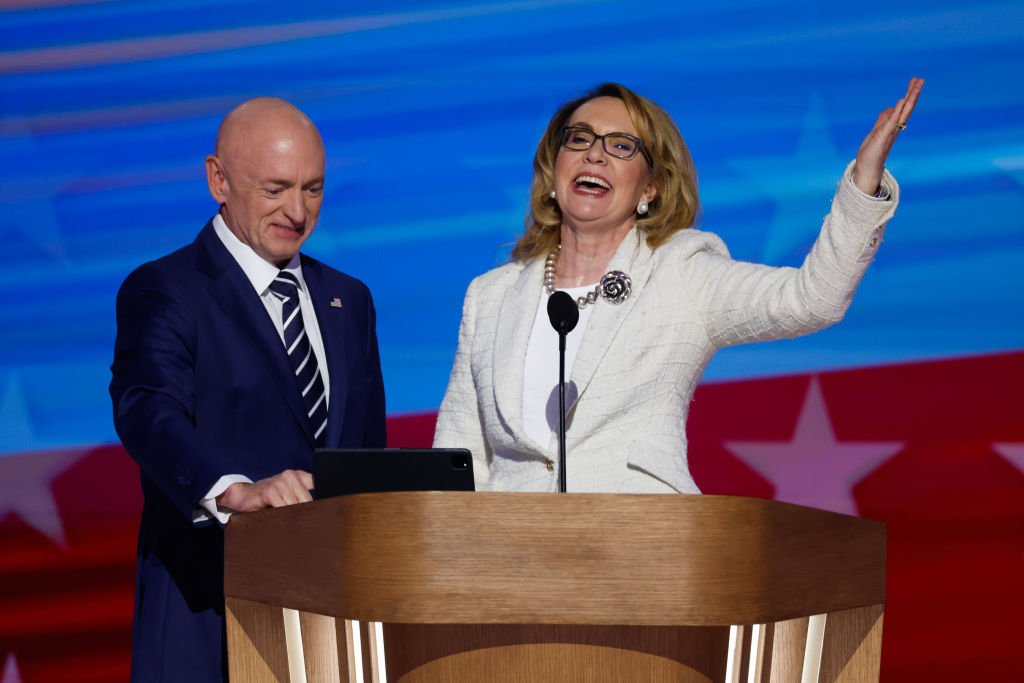2024 election
Tucson & Arizona Steal the Spotlight at DNC While Chi-Town Holds Its Breath

At the Democratic National Convention, U.S. Sen. Mark Kelly took the stage following his wife, Gabrielle Giffords, capturing the attention of a prime-time audience. Mayor Regina Romero co-chaired the platform committee alongside former New Orleans mayor Mitch Landrieu, emphasizing collaboration within the party.
Romero addressed attendees, stating, “Vice President Harris is now carrying the torch, and she and Gov. Walz are committed to delivering results for the American people.” Meanwhile, Stephanie Grisham, a former spokesperson for Donald Trump, advocated for a shift in the vice presidency, aiming to keep her former boss out of power.
Adding to the event’s significance, former University of Arizona point guard Steve Kerr made a surprise appearance, humorously wishing Trump’s presidential aspirations a “night, night.” Known for his achievements as a coach, Kerr is no supporter of Trump, aligning more with progressive values.
Prominent figures from Arizona participated in the convention, including U.S. Rep. Ruben Gallego, who is campaigning for the U.S. Senate. Mesa Mayor John Giles, a Republican, also endorsed Harris, showcasing the state’s growing political influence.
The 11 electoral votes from Arizona have become crucial in the national arena, as the state transforms into a battleground. This evolution highlights Arizona’s historical contributions to American politics through figures like Carl Hayden, Barry Goldwater, and John McCain.
The speeches made at the convention were mixed, but Giffords’ heartfelt moment lip-syncing “Gab-by! Gab-by!” stood out. Sharing her personal journey post-tragedy, she recalled the encouragement she received from President Joe Biden, emphasizing a commitment to “freedom from gun violence” and expressed confidence in Harris to confront the gun lobby.
Following Giffords, Sen. Kelly focused on national security issues, warning of Russian aggression under President Vladimir Putin and drawing connections to Trump’s influence over NATO. His remarks underscored the geopolitical stakes tied to the upcoming election.
Gallego delivered a compelling speech, but attention spans varied, as attendees were distracted by the hustle and bustle of the convention. The mix of speakers brought attention to Arizona’s changing political landscape.
Historically, many believed Arizona was not a contender in presidential races, yet recent shifts, particularly with Trump’s emergence, have altered that perception. The state is now positioned to play a pivotal role, as election chances cut deeper into its fabric.
This new status could translate into significant federal investments across diverse sectors, from infrastructure to education. For Arizona, this means potential funding for roads, public transit, and national parks, alongside bolstering local universities.
The state’s unique dynamics, supported by its military presence and research grants, further enhance its appeal in national politics. As Arizona embraces its role as a pivotal state, attention from high-profile candidates will likely increase.
In addition to expanding technology infrastructure in Phoenix, Tucson is also benefitting from federal investments aimed at improving internet access. Romero’s push for federal grants has shown promise, as officials aim to enhance urban programs and services.
Overall, Arizona’s influence in the political landscape is undeniable, setting the stage for a potentially transformative electoral cycle. The convergence of national interests with local needs illustrates a unique opportunity for the state moving forward.


















